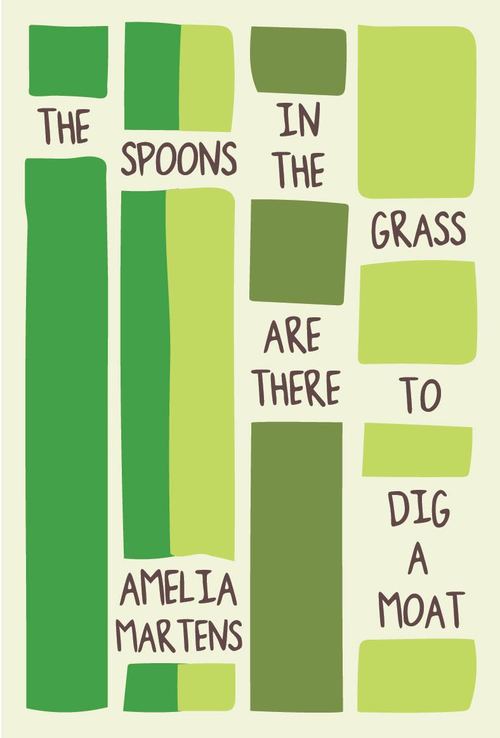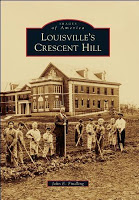The Spoons in the Grass are There to Dig a Moat
By Amelia Martens
Sarabande Books
Paperback, $14.95
Review by Joanna Lin Want
Entire contents copyright © 2016 Joanna Lin Want. All rights reserved
In her debut collection of full-length prose poems, The Spoons in the Grass are There to Dig a Moat (this year’s installment in the Linda Bruckheimer Series in Kentucky Literature), Amelia Martens writes of a pre-apocalyptic world – which is to say, our own. The collection’s title suggests the futility of attempting to insulate ourselves against the onslaught of contemporary, man-made threats, be it terrorism, environmental destruction, or ongoing war. Many of Martens’ poems highlight how, in a globalized world, we are all connected, yet it is a privilege of the first world, where “people eat endless appetizers and die from sadness,” to carry on as if our actions do not affect—that is, harm—others. If we can’t protect ourselves, and our children, from the reality of the world’s destruction, then the least we can do, Martens seems to say, is to see it clearly and without flinching. In many respects, this collection falls into the realm of poetry of witness, traversing the borders between personal and political, private and collective. Martens’ work is a commitment to seeing clearly in a world that defies easy explanation. In the poem “They Shoot People, Don’t They?” the poem’s speaker declares, “I can’t tell our daughters everything will be all right.” One way to read this collection, then, is as a search for what to tell those daughters, when to tell them everything will be all right is impossible.
In the first poem, Martens constructs a domestic world and introduces the collection’s most important character, “our daughter.” Many of the poems begin as though they are addressed to the daughter’s other parent: “Our daughter steps on roly-polies.” “Our daughter wishes on a star.” “Our daughter claims there’s a bone caught in her heart.” But as the collection builds, “our daughter” becomes less of a specific daughter and more of a universal one. Our daughter’s questions and observations appear throughout the poems, marking both the wonder and the terror of the world into which she is born. Our daughter proclaims, “Momma, my body is made of stars. Your body is made of star parts.” but also, “We are monsters, momma.” In Martens’ poetry, readers feel the import of both these truths about humanity and recognize the dilemma of how to balance them. In these poems, “our daughter” serves not as the voice of untainted innocence, but rather as the voice of unfiltered clarity.
Martens offers little in the way of respite from the catalogue of atrocities addressed in the collection: the Newtown massacre, the Boston Marathon bombing, the Iraq War, the kidnapping of girls by Boko Haram, Japanese nuclear fallout, antibiotic resistance, dying honeybees, and refugee crises, among others. In several poems, Martens imagines that the Second Coming has occurred, but Jesus, hiding out in bars and employed in a series of tedious jobs such as drive-thru cashier and airport scanner, seems as befuddled and powerless to save the world as anyone else. Martens offers no balm or prescription for a world ravaged, such as that offered by Polish poet Adam Zagajewski, who writes, “You’ve seen the refugees going nowhere, / you’ve heard the executioners sing joyfully. / You should praise the mutilated world.” Martens takes a different tack, offering little in the way of praise, but much in the way of tenderness and compassion. In reading these poems, one senses not only open eyes, but an open heart as well. If the world breaks your heart, then it also has the capacity to enlarge it. In the poem “Union,” referring to “our daughter,” Martens writes, “She wants to take my heart out and sweep every room.” If you want to know what that feels like, read these poems.
Joanna Lin Want lives in Kalamazoo, Michigan with her husband and daughter. Her poetry and reviews have appeared in Crab Orchard Review, Flyway: Journal of Writing and Environment, The Aurorean, Indiana Review, JAC and others.





